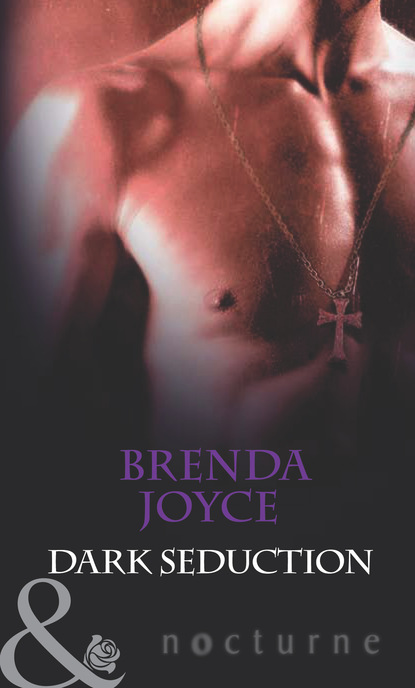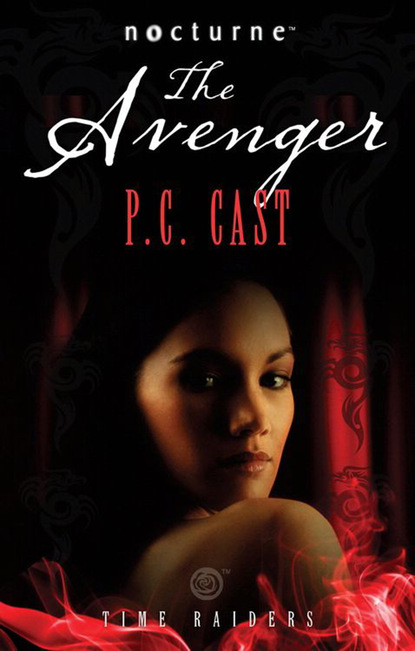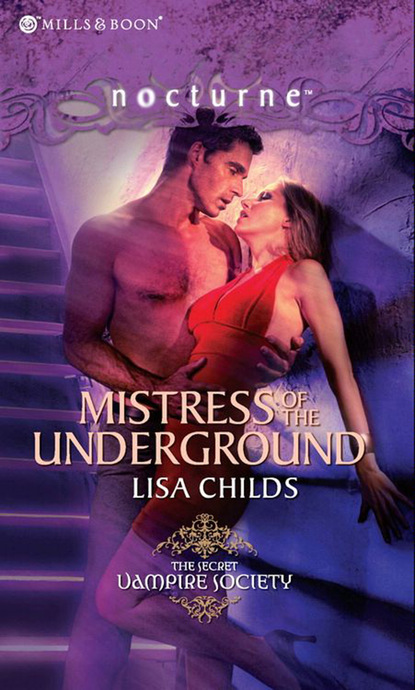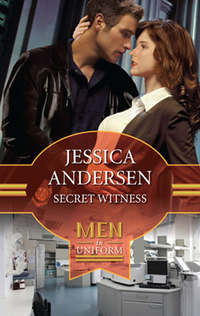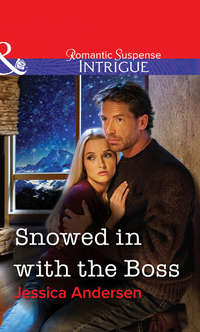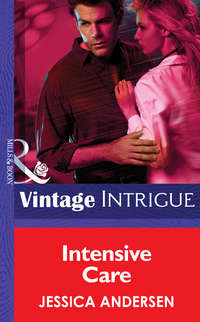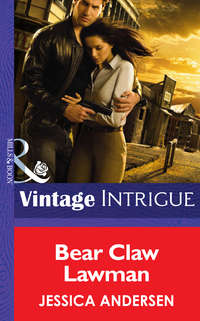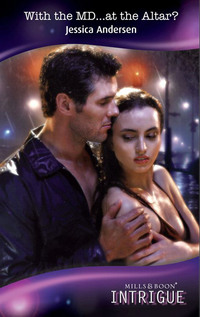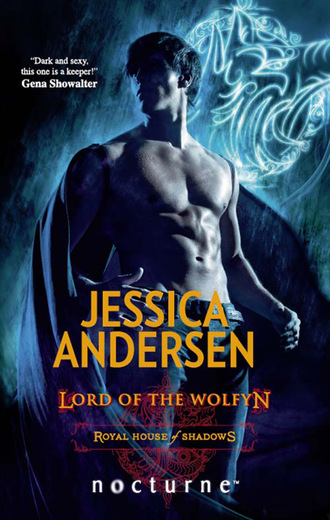
Полная версия
Lord of the Wolfyn
Yeah. This was so not her scene. She should just leave.
“Miss Weston!” MacEvoy came through an employees-only door with his hands outstretched and his red-rimmed eyes holding an expression of pleasure that might or might not be faked.
A middle-size, middle-age grasshopper of a man, he was all arms and angles inside a faded black suit that made him look like a Victorian mortician and, she suspected, had come from the clearance rack at Cosby’s Costumes a few doors down.
Don’t be bitchy, she told herself as she shook his hand and returned his greeting. It’s not like he came looking for you. And it wasn’t his fault she felt totally out of place. The problem wasn’t with the location, or with him.
“Right this way.” He headed to the register area, where a wood-and-glass case held a collection of impressively ugly silver-and-moonstone jewelry, along with a sterling frog whose garnet eyes seemed to follow Reda when she moved. But that was just her imagination.
Right?
Holding back a shiver, she reminded herself that she didn’t believe in magic, that this was all just a put-on for the tourists. If the atmosphere was working on her, it meant that MacEvoy was better at his shtick than she would’ve thought.
Disappearing behind the case, he rummaged around for a moment, then made a satisfied noise. When he straightened, he was holding a black, metal-edged cardboard clamshell box that was marked Acid-Free Archival Storage on the spine.
Reda’s mental cash register went cha-ching and she wondered whether she should do a “thanks but I’ve changed my mind,” and have another session with the shrink instead. Certainly be cheaper. Or she could go home and fill out the paperwork on her desk—applications to the forensic-science programs at Colby and New Haven. That wasn’t the same as saying she was wimping out. It was just exploring options.
But those practical thoughts exited stage left the second MacEvoy set the box on the counter and flipped it open … and a skim of heat washed through her, followed by a prickle of gooseflesh that made her feel suddenly awake, though she hadn’t been aware of being sleepy.
The shopkeeper grinned. “You like it?”
“Oh, yes,” she breathed. “Yes, I do.” Because it wasn’t just any book. It was the book. It had to be.
The cover was intricately carved with another forest scene, this one with an achingly lovely girl front and center, running along a narrow path. She was wearing a long, flowing cloak over a peasant dress, and was looking back over her shoulder with an expression of mingled terror and excitement. There were no authors’ names, just a title that stood up a little taller than the rest of the carving. Rutakoppchen.
“Red Riding Hood,” she whispered, hearing the words in her mother’s voice. Not just one of a kind, her maman had said on that long-ago birthday, but yours alone. It was sent to me, darling, to give to you when the time is right.
MacEvoy looked surprised. “You speak the language? The paperwork says it’s some obscure Western European dialect, and doesn’t make any promises on the translation.”
“I don’t need a translation.” She already knew the story by heart. Pulse thrumming, she reached for the book.
The shopkeeper hooked the box with a spindly finger and tugged it back an inch. “You going to buy it?”
Her plastic was on the counter before she was even aware of having made the decision. More, she didn’t yank it back when MacEvoy two-fingered it, even though her smarter self was inwardly screeching that they hadn’t talked price.
She didn’t care. She had to have it, regardless of whether it was really the same one or not, really one of a kind. Not because of the strange, fragmentary dreams she’d been having every night since she brought home the print—a circle of stones like Stonehenge only not, a sense of pounding urgency, a flash of green eyes that brought heat and left her to wake up alone and aching—but because it was a missing part of her past. And if that was transference, she didn’t give a crap right now.
As he swiped her card, she brushed her fingertips across the carved wood, and got a jolt of strange excitement. Nerves jangled and her smarter self asked what the hell was going on here, why was she acting like this?
“Is it true that the wolf doesn’t just eat Red in this version?” MacEvoy asked as he waited for the slip to print. He glanced over at her, getting a gleam in his red-rimmed eyes. “The paperwork said that he seduces her first, enslaves her, plays with her until he gets bored … and then he eats her.”
“Something like that,” she said. She was dying to page through, but didn’t want to do it in front of him, though she didn’t know why, just as she couldn’t explain the sudden pounding of her heart and faint clamminess of her hands, or the liquid churn low in her belly. All she knew for sure was that her hands were shaking as she scrawled on the slip, and then flipped the clamshell shut and tucked it under her arm. “Thanks. See you around.” Or not.
“Wait,” he said as she headed for the exit. “I wanted to ask you … Aren’t you that cop? The one—”
She put her head down, clutched the box and bee-lined it out of the shop.
The short walk to her apartment on the outskirts of the “cool” district where the old houses were still getting restored seemed to take forever, especially when two of her neighbors pretended they didn’t see her. Guilt stung, but Reda told herself—as the shrink had told her—that they weren’t acting that way because they thought she was to blame for her partner’s death in a liquor-store robbery gone bad. Like most of her friends and family, they just didn’t know what to say anymore given that Benz had been dead for months now, and she was still ghosting around looking as if her best friend had died.
Except that he had. And it was her fault. Not because she’d done anything wrong, but because she hadn’t done anything. She had frozen. Just stood there while a strung-out meth head looking at his third strike opened fire.
The news reports had said she was lucky to get away. The other cops hadn’t said anything, really. Just like her neighbors didn’t now as she hurried past them. But for a change the uneven thudding of her heart didn’t have anything to do with the sidelong looks and whispers, or the knowledge that her father and brothers had been right when they said she wasn’t the save-the-world type. Instead, it was the heavy weight of the box she held clutched to her chest, gripping it so tightly her fingers had gone numb.
She was breathing so fast she was practically lightheaded by the time she let herself into her small, homey apartment. Not even pausing to shuck out of her leather jacket, she dumped her purse near the door and crossed to the narrow galley kitchen. The hollow sound the box made on the butcher-block counter reminded her that she hadn’t looked at the credit-card slip, didn’t know how much she had dropped on the thing. Didn’t care.
“So open it,” she told herself, the words sounding far too loud on air that had gone still around her, like the world was holding its breath. Or maybe—probably—that was just her. She was turning this into a way bigger deal than it needed to be.
Still, her fingers trembled as she flipped open the box, then reached in and touched the wooden cover. She told herself the faint tingle was her imagination, just as the hot dreams she’d been having the past few nights had been nothing more than memories of her girlish rescue fantasies with the temperature turned up by her adult experiences.
She traced the raised lettering. Rutakoppchen. A version of Red Riding Hood with the wolf as both sinner and seducer, the woodsman as the hero who saves the girl and takes her away from her old life to a new, better one. Seeing the book, touching it, made her mother feel closer than she had in years. Even if it turned out to be just a copy, it was worth whatever she had paid.
But she had to know, so she opened it. The cover creaked like an unoiled door, her throat became suddenly parched and tight … and then her eyes filled at the sight of a blank page with two lines of elegant script right in the center, done in blue ink that had faded over the past two decades.
To my sweet Alfreda on her eighth birthday, with the rest of the story to come when you turn sixteen.
—Your maman
Reda’s heart thudda-thudded in her chest as she brushed her fingers across the last word. Maman. Her older brothers had teased her about putting on airs, calling her “princess” and poking at her because there was nothing remotely royal about any of them. They were army brats and proud of it.
You’ll never get anywhere by looking backward. The major’s voice suddenly came so clear he might have been standing right behind her. Which he wasn’t; he was overseas. It was just that the words were such a familiar refrain: eyes up and ahead; one foot in front of the other; look ahead, not back. Words to live by.
“You’re right,” she said softly. “I know you’re right.” She should put the book back in its box and set it aside, maybe even lock it in the fireproof safe where she kept her unused passport. She should take comfort in knowing she had a cherished memory back, and then focus on more important things—like filling out those applications.
But she turned the page, anyway, unable not to glance at a picture of the young, innocent girl with her hamper. Then one of a huge wolf—her maman had called it a wolfyn—stalking her along the pathway and watching with too-human eyes as she entered her grandmother’s cabin, only to find it empty. The next few pages showed the wolfyn and girl together, the story relying on the text more than pictures. But then the huge beast morphed to a shaggy-haired man with hot, feral eyes, and the girl looked up at him, face bright and excited, like she was looking at a handsome prince, not a leering wolfyn. But now Reda saw something she hadn’t before: the girl looked disconnected, and she was almost smiling past the wolfyn, not at him.
Reda’s stomach dipped. She had seen that look on the faces of roofie victims.
She skimmed the next few panels, realizing that her maman must have skipped some pages. Or had she seen the pictures as a child and not really realized what they meant? Because now, looking at them with an adult’s perspective—and that of a cop who had worked rape cases, though mercifully far fewer than would be the norm in a larger, grittier city—the girl’s vacant, glassy expression and rag-doll compliance to the wolfyn’s G-rated yet highly suggestive demands smacked of drugs or brainwashing. Or both.
She hadn’t been seduced. She had been compelled.
Reda shuddered. “That’s not really the way I remembered this part.” But then again, most fairy tales had started out dark and bloody, rarely reaching mainstream puppies-and-kittens territory until Disney got hold of them.
Something buzzed in the back of her brain, like a trapped bumblebee of a thought that wouldn’t land long enough for her to catch its meaning.
“Poor girl,” she murmured, touching an image of the young woman lying heavy-lidded near the hearth of the cottage, where a fire burned low. The wolfyn was halfway between his two forms, looking out a window with the fur at his nape erect as if searching the shadows for danger. It was hard to tell if he was protecting her or holding her captive. Probably both, depending on who you asked.
Reda found herself getting far too caught up in feeling sick for a two-dimensional character who had suddenly become a stand-in for too many of the victims she had worked with. She was so wrapped up in that theme, in fact, that when she turned the next page and saw the woodsman looking up at her from the page, she simply stared for a few heartbeats.
Then she whispered, “There you are.” Which was ridiculous because, just like the girl, the woodsman wasn’t anything more than a picture in a storybook.
Only he was more than that. He was the hero.
Standing in the cabin doorway with a long-handled ax held across his body, he should have looked like a lumberjack stereotype. Instead, he looked strangely out of place, as if a knight errant had been dropped into this story from another. His forearms, bared by rolled-up sleeves, were corded with a tension that carried from his taut-knuckled grip on the ax handle throughout the rest of his big, rangy body and up to his face, which was etched with disgust and determination as he took in the scene within the cabin.
Reda’s perceptions tunneled down to the tousle of dark hair atop his noble brow and wide cheekbones, his narrow-bridged, aristocratic nose, full lips and square jaw, and his eyes … dear God, his eyes. They stared out of the page and cut right into her, seeming alive even though it was just an illustration, and a black-and-white one at that.
She knew those eyes, though. “Green,” she whispered, suddenly yearning in a way that made no sense, for a man who didn’t really exist. “His eyes are green.”
Help him. The thought came in a voice that sounded like her own breathing turned into words that weren’t hers.
A shudder coursed through her body.
“Great, now you’re imagining things while you’re wide awake,” she said aloud, trying to use the words to chase away the sudden crackle that laced the air.
It didn’t work. The air stayed heavy and thunder rumbled, hollowing the space beneath her diaphragm and stealing her breath.
This time it was the whistle of the rising wind outside that said, Help him. Save him.
Her heart stuttered when she looked out her apartment window and saw that the sky was as clear and bright as it had been when she left MacEvoy’s shop. Yet thunder rumbled again, vibrating through the soles of her boots and up through her body, making her feel suddenly empty and alone.
He is alone, too. Help him. It was the sound of wind, yet the neighborhood trees weren’t moving and the light, fluffy clouds hung motionless in the sky.
A whimper lodged itself in her throat, the weak noise unuttered, but the panic that spawned it remained, bringing a memory so deeply buried that she didn’t remember even having it until it was right there, full-blown in her mind.
“So what do you think—is she nuts?” her father asked the doctor. She could see them both from the waiting room through the partly open office door, could hear them clearly, though their voices were hushed.
“We don’t use labels like that,” the stern-faced doctor said, but that made her father nod as if he’d gotten the answer he expected. The doctor sighed. “Look. The mind has a sort of framework it uses to deal with trauma and loss, a way of rationalizing how it happened, why and what it means. In this case, Reda’s mind has chosen an atypical framework, one where she believes that her mother is not dead, but rather trapped in a land of magic beyond our own. Things like this can happen following the loss of a parent, especially in children her age. Usually it goes away on its own.”
“How long?”
“Months, sometimes longer. In the meantime, it’s basically harmless.”
“You call sleepwalking out the back door and into the woods ‘harmless’? What if she got lost? Or, worse, got found by the wrong sort of person?” The major’s voice gained volume at the end, but then he glanced out at her and lowered his voice once more to say, “Help me out here, Doc. I need this to stop. The boys need it to stop. We all need to move on.”
The doctor didn’t say anything, and Reda’s heart went bumpity-bump at the thought that he was going to tell the major that she was right, the kingdoms really did exist, and that sometimes visitors accidentally fell through the gates connecting the realms. Suddenly excited, she leaned forward in her chair.
“There are a few things we could try,” the doctor said finally. “The first thing I would recommend is getting rid of the book.”
The memory wavered and disintegrated, but the heartache remained, along with Reda’s dull surprise at remembering how it had happened. Not because the major had tried to pretend otherwise, but because the months of therapy that followed had trained her not to think about the book, magic or monsters.
Or, really, even her mother.
The police shrink had wanted to talk about her mother’s death, of course, but Reda had just shrugged and said, “It was a long time ago.” And it would have stayed that way … if she hadn’t found the book. Or rather, if it hadn’t found her.
Thunder rumbled, closer now, though the sun still shone. Unbidden, her eyes went to the picture of the woodsman standing in the doorway, staring up out of the page at her and making her yearn. “Repressed memories,” she said softly. “That’s what this is all about, isn’t it?”
Benz’s death had put a crack in the dam, and the strange, cosmic coincidence of her seeing the woodcutting in MacEvoy’s shop had washed out its base of support, meaning that now the entire construct was poised to come crashing down on her. Oddly, considering how much she used to pride herself on control and self-discipline, she didn’t really mind. Since the shooting she had felt like she was running in place, or maybe hunkered down inside herself, waiting for something. And this was it.
Or was it? What if this was all just happening in her head? What then?
The rational, logical part of her said to call the shrink and have herself checked in somewhere. Instead, reaching out with a hand that suddenly didn’t shake at all, she touched the page, resting her fingers on the woodcutter’s chest.
It didn’t take any effort now to remember the magic words her maman had taught her. The two of them used to sit on a mossy bank down by the duck pond, cross-legged, knees touching. “Concentrate,” her maman would say, over and over again, though somehow it never seemed like a lecture, never like work. “Close your eyes, visualize the doorway and say the spell, and when you open your eyes again you’ll find yourself where you were meant to be.”
The words weren’t magic, of course, wouldn’t conjure some strange passageway to a magical realm. But they were exactly what her mind needed in order to wash away the dam once and for all.
So she thought, What the hell? And she said the words.
Crack! Lightning split the air around her and incredibly, impossibly, wind whipped past her, around her, though she was standing inside her apartment. Panic lashed through her and she froze, paralyzed by the fear. Her heart hammered in her ears, but that inner pulsation was the only movement she could manage.
She tried to call for help but couldn’t, tried to tear her eyes from the book but couldn’t do that, either. She was snapping, losing it. She screamed but made no sound, fought but didn’t move. The woodcutter’s eyes grew larger and larger in her vision, until she saw nothing but the inky black, heard nothing but the wind, and felt …
Nothing.
Kingdom realm
Moragh snapped out of her trance as the divination was interrupted by magic of another kind—a blood-linked power the likes of which she hadn’t sensed in many years.
“The prince!” she hissed, excitement firing in her veins as she recognized the signal’s source. Finally—finally—after all this time she could feel the spell that had snatched her prey from her. More, she could follow it. Even after the first flare of power leveled off, the connection remained inside her, throbbing like a heartbeat. One that said, This way. I can lead you to him.
The spell had reactivated. Thank the dark lords.
Her lips curved in a smile that the ornate, gilt-edged divination mirror showed as feral, with a hint of fang gleaming from behind the lips of a coolly gorgeous brunette in her forties. She had survived the Blood Sorcerer’s wrath over her failure to kill Prince Dayn the first time, and had eventually won her way back into his graces. But she hadn’t ever escaped the failure. And now … “Redemption,” she said, the word echoing off the cool stone walls of the castle’s upper reaches.
Over near the hearth, her servant, Nasri, looked up from his mopping. The old, crooked-fingered gnome—who now had only seven of those crooked fingers, having recently been caught filching a meat pie he’d had plenty of coin to buy—was cleaning last night’s bloodstains up off the stonework. The water in his bucket was dark, the gray mop gory. “Mistress?”
“Send word to the bestiary. I want the largest two ettins ready to hunt in an hour.” The three-headed giants were pure rage wrapped up with hunger, killing machines that need only be pointed toward their target. “And have the beast master reinforce their collars and control spells. I’ll be handling them myself, with you along to help tend them.”
He cringed and whined low in his throat. “Wouldn’t you rather—”
“Go,” she snapped with enough force to have him squealing and bolting out the door. When he was gone, she smiled again into the warped mirror. “By my life and blood, I’ll get him this time.”
She had missed before. She wouldn’t miss again.
Chapter 2
Wolfyn realm
As the blood moon edged over the dark tree line, a perfect blue-white circle visible through the windowed wall of the big bedroom, Dayn did up the last button of his plaid shirt and shrugged into his fleece-lined bomber jacket.
“You could stay, you know. Be here when I get back.” He glanced over. A cut-glass lamp shone from the bedside table—a Tiffany knockoff that had been imported from the human realm and converted to run off the quasi-magical energy that powered the wolfyn’s gadgets. The pale glow lit the room’s earthy brown walls and finely carved furniture, both of which were subtly worked with the Scratch-Eye pack’s sigil: four parallel bloodred slashes crossing an amber wolf’s eye. The bed was piled with luxurious crimson-dyed furs, but the room’s true centerpiece was Keely. The pack’s alpha bitch lay stretched, sinuous and satisfied, her scent musky with arousal and the magic of the blood moon. Graced with the toned body of a huntress and the ruddy hair of a bitch in her prime, she was unmated and independent, just like him.
Except that she was nothing like him. Not really.
They met and mated this one night each year, when sex sparked the strongest of changes and the wolfyn stayed largely in wolf form for the next three days, running together, renewing their magic and making or breaking new alliances. She didn’t dare mate with a male of her kind during the blood moon lest he claim the Right of Challenge for the pack leadership, which had gone to her brother, Kenar, rather than down through her as was traditional. So, as the Scratch-Eye pack’s “guest”—that was the name given to the few accidental realm travelers who by some quirk of the vortex magic couldn’t return home through the standing stones—Dayn had become Keely’s choice. She had laid it out with the blunt practicality of a wolfyn: sex once a year, nothing more or less. Which worked just fine for him for a number of reasons.
Their relationship might have begun as a transaction, but over time it had mellowed to friendship. Or what did the humans call it? Friends with benefits. But, friends or not, he didn’t tell her that he was almost certain this had been the last time. He didn’t dare. Instead, he said, “Thanks but no thanks on the staying over. And you wouldn’t have asked if you didn’t know that would be my answer.”
“You understand me too well. So … same time next year?”
“Of course,” he said, and then added, as he always did, “unless you’re mated by then.”
Her eyes flashed. “Kenar is a good alpha.”
That was debatable, but Dayn wasn’t going to get Keely or any of the other pack members to admit that their alpha was more interested in himself than the pack or its traditions. Or that it had been wrong for him to twist those traditions around in order to run off the male Keely’s father had brought in from an outside pack to be her mate and his successor. Granted, the male—Roloff—shouldn’t have left. But that didn’t make Kenar right.


